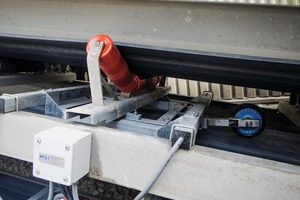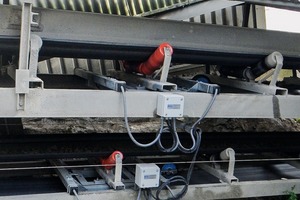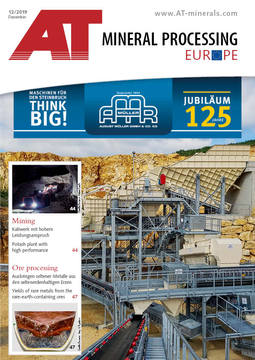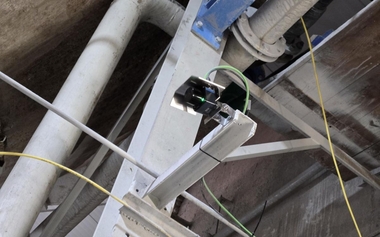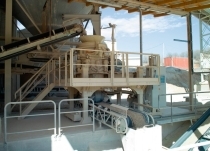Belt scales for process monitoring in a lime plant
In this context, monitoring the throughput rates on the belt conveyors is becoming increasingly important. To monitor these throughput rates precisely and continuously, one option is built-in belt scales. In the lime plant operated by Johann Bergmann GmbH & Co. in Kasendorf/Germany, belt scales have proven effective as these can be retrofitted in belt conveyors. Here limestone is extracted, processed and refined for use in a wide range of applications, e.g. as aggregate in the steel industry, for treatment of sludge or as an indispensable raw material in the construction materials industry and agriculture.
In total, four stationary conveyors have been equipped with belt scales from MTS – three more are to follow. Weighing in the lime plant is performed for determination of the internal material streams and achieves accuracies with under 2 % measurement error.
On the belt conveyors, limestone is transported from stationary crushers to the lime kiln and the sand plants. Depending on the required size of the rocks, the rocks go through several crusher stages that are connected by belt conveyors. For two of the belts, installed directly downstream of the precrusher, MTS opted for the use of single-idler belt scales of the type EBW 10 and EBW 10-HD, which have been structurally adapted with a reinforced frame to larger belt widths and flow rates.
On account of the smaller belt widths and flow rates, two of the downstream belt conveyors – in the process path after sand drying – were equipped with belt scales of the type ESW 2.2. The ESW 2.2 scales have been specially developed for the lower- and medium-capacity segment and feature a compact and simple design as well as high frame stiffness. The special structure enables fast access to the load cells – that saves time when maintenance or repairs are necessary.
Evaluation of the four belt scales is performed by ModWeigh FBW basic weighing electronics. They are connected to the higher level control system by coupling by means of analogue signals (4 – 20 mA) and pulse output. Every scale has its own operating and display module, which considerably simplifies handling for service, commissioning and recording of the measured values. The system operator is provided with information on the absolute quantity and the current mass throughput rate in t/h as well as other measurement signals. A later connection by means of Profibus DP or Profinet is still possible.
During commissioning of the belt scales, first a zero adjustment is performed on all scales. Because of the local preconditions, two belt scales could not be adjusted with the reference material. Adjustment with test weights that are laid onto the measuring distance is an alternative.
Belt scales deliver precise measurement data that can be used for quality assurance and for increasing productivity. So belt scales present a low-cost and reliable solution for monitoring material streams in lime processing. The use of belt scales is possible in almost all belt conveyors. For this, MTS offers numerous variations as single-idler or multi-idler belt scales for stable and precise weighing over the long term – also in a legal-for-trade version.

